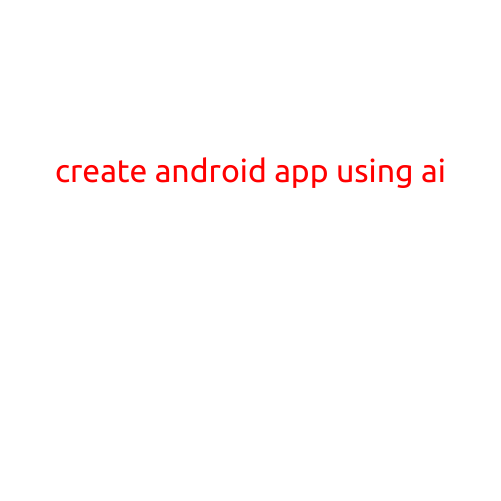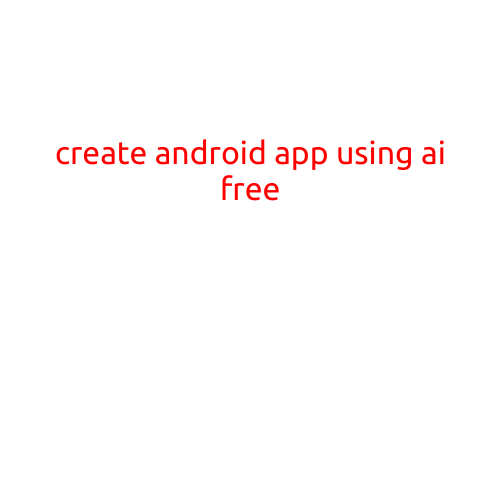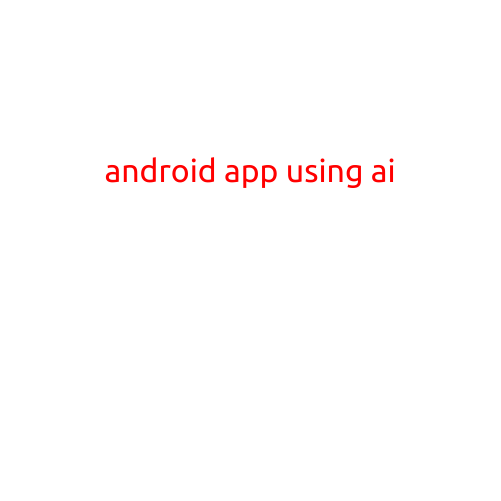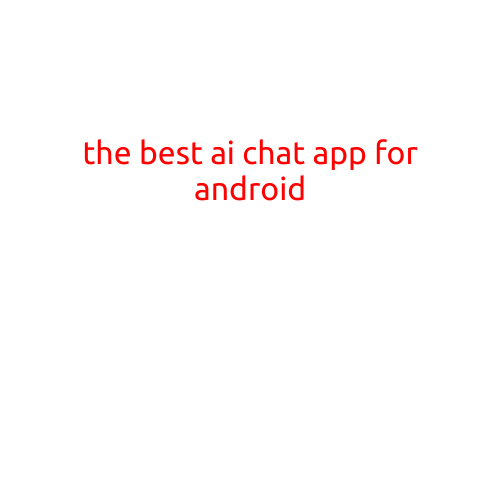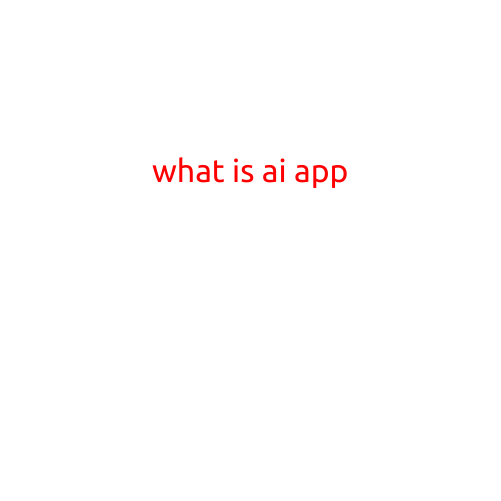
What is an AI App?
The world of technology has witnessed a significant shift in recent years with the emergence of Artificial Intelligence (AI) as a pioneering force. One of the most remarkable outcomes of this revolution is the development of AI Apps, which are transforming the way we live, work, and interact with each other. But what exactly is an AI App, and how does it differ from traditional mobile applications?
What is an AI App?
An AI App, also known as a cognitive app, is a type of mobile application that utilizes Artificial Intelligence and Machine Learning (ML) algorithms to perform tasks that typically require human intelligence. These apps are designed to imitate human-like behavior, learn from data, and improve their performance over time.
AI Apps are built using a range of AI technologies, including:
- Natural Language Processing (NLP): enables apps to understand and respond to voice commands, text, and other forms of human communication.
- Computer Vision: allows apps to analyze and process visual data, such as images and videos.
- Machine Learning: enables apps to learn from data and improve their performance over time.
- Deep Learning: a subset of ML that uses neural networks to analyze complex data patterns.
How do AI Apps Work?
AI Apps work by using AI algorithms to analyze data, identify patterns, and make predictions or take actions. This process typically involves:
- Data Collection: AI Apps gather data from various sources, such as user input, sensor data, or online information.
- Data Processing: AI algorithms analyze the collected data to identify patterns, relationships, and insights.
- Inference: The AI app uses the insights gathered to make predictions, classify data, or take actions.
- Feedback Loop: The app learns from user feedback and adjusts its performance accordingly.
Examples of AI Apps
- Virtual Assistants: Apps like Siri, Google Assistant, and Alexa use AI to understand voice commands and perform tasks.
- Image Recognition: Apps like Google Lens and Amazon Rekognition use AI to analyze images and identify objects, people, and text.
- Personalized Recommendations: Apps like Spotify and Netflix use AI to suggest music and movies based on user preferences.
- Chatbots: Apps like live chat support software use AI to engage with users and provide automated customer support.
Benefits of AI Apps
The rise of AI Apps has brought numerous benefits, including:
- Improved User Experience: AI Apps can understand user intent, provide personalized recommendations, and assist with tasks more efficiently.
- Increased Efficiency: AI Apps can automate repetitive tasks, free up human resources, and optimize processes.
- Enhanced Security: AI Apps can detect and prevent security threats, such as malware and phishing attacks.
- New Revenue Streams: AI Apps can generate revenue through subscription-based models, in-app purchases, and targeted advertising.
Conclusion
In conclusion, AI Apps have revolutionized the way we interact with technology, showcasing the power of Artificial Intelligence in transforming mobile applications. As AI continues to evolve, we can expect to see even more innovative and intelligent apps that improve our lives, work, and social interactions. Whether you’re a consumer, developer, or business owner, understanding the capabilities and benefits of AI Apps is essential for staying ahead of the curve in the rapidly changing technological landscape.

